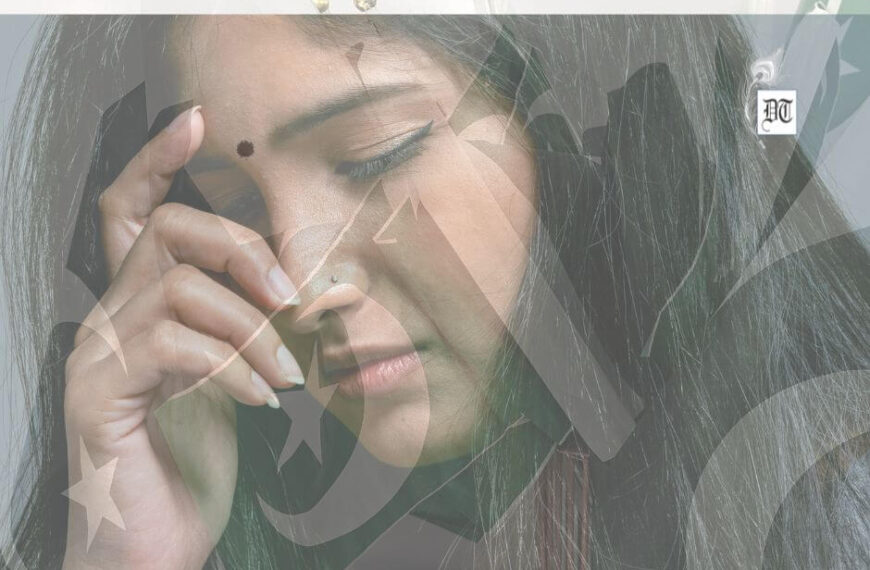Torture is the worst ever human invention. The main focus of this article is on the preventative measures against torture and ill-treatment by state agents, particularly law enforcement officials. In addition, brief information on standards on torture is given along with rights of torture victims. Here’s an in-depth research article on torture, by Amit, our Norway-based Editor-at-large, exclusively for Different Truths.
No official government or private, after committing the heinous act of torture, can escape the punishment under the pretext (or justification) of receiving the order from their superior as had been established in Nuremberg trials ruling. Even if a country has not ratified a particular treaty prohibiting torture, because the prohibition of torture is so fundamental and customary, the country is in any event bound on the basis of general international law. The prohibition of torture is found in a number of international human rights and humanitarian treaties and is also regarded as a principle of general international law. The prohibition of torture is also considered to carry a special status in general international law, that of jus cogens, which is a ‘peremptory norm’ of general international law. The general international law is binding on all states, even if they have not ratified a particular treaty. Rules of jus cogens cannot be contradicted by treaty law or by other rules of international law.
State officials are prohibited from inflicting, instigating or tolerating the torture or other cruel, inhuman or degrading treatment or punishment of any person. An order from a superior officer or a public authority may not be invoked as a justification for torture. States are also required to ensure that all acts of torture are offences under their criminal law, establish criminal jurisdiction over such acts, investigate all such acts and hold those responsible for committing them to account.
Accountability of Law Enforcement Personnel
The prime responsibility of law enforcement personnel is not to commit torture, and to prevent others from doing so: to stop the creation of victims. If torture has been inflicted then the rights of the victim come into play, and numerous specific responsibilities for law enforcement personnel arise. These include:
i. Preventing further torture taking place;
ii. Giving the victim an opportunity to complain;
iii. Granting access for proper medical and psychological care and legal advice;
iv. Ensuring the complaint is properly investigated and suspected perpetrators brought to justice as with other crimes;
v. Playing a role in preventing such illegal acts in future.
Any instance of torture creates multiple duties and obligations on law enforcement personnel to go as far as reasonably possible to stop and put right the wrong which has occurred; conversely, not to cover-up the wrong but on the contrary to have the truth revealed and to help correct the damage done (physical, mental, economic and social) to the victim, without fear or favour.
Code of Conduct for Law Enforcement Officials (adopted by General Assembly resolution 34/169 of 17 December 1979) is an important and impressive international instrument to check and control on the practice of torture perpetrated by the government official. Article 1 illustrates:
Law enforcement officials shall at all times fulfill the duty imposed upon them by law, by serving the community and by protecting all persons against illegal acts, consistent with the high degree of responsibility required by their profession.
Further, Article 2 says, “In the performance of their duty, law enforcement officials shall respect and protect human dignity and maintain and uphold the human rights of all persons”.
Nonetheless, Article 3 stress that force can be used only when ‘strictly necessary’. Law enforcement officers are allowed to use the force only in exceptional circumstances, however, with utmost carefulness and to proportionate to the situation. Moreover, the use of force can never be legitimised to achieve the objectives (such as extracting information by force). Furthermore, commentary on Article 4 elaborates that firearms should not be used except when a suspected offender offers armed resistance or otherwise jeopardizes the lives of others and less extreme measures are not sufficient to restrain or apprehend the suspected offender.
Nonetheless, Article 5 highlights:
No law enforcement official may inflict, instigate or tolerate any act of torture or other cruel, inhuman or degrading treatment or punishment, nor may any law enforcement official invoke superior orders or exceptional circumstances such as a state of war or a threat of war, a threat to national security, internal political instability or any other public emergency as a justification of torture or other cruel, inhuman or degrading treatment or punishment.
This prohibition derives from the Declaration on the Protection of All Persons from Being Subjected to Torture and Other Cruel, Inhuman or Degrading Treatment or Punishment (CAT).
Article 6 instructs that “Law enforcement officials shall ensure the full protection of the health of persons in their custody and, in particular, shall take immediate action to secure medical attention whenever required”.
Elaborating further commentary on Article 6 says, “While the medical personnel are likely to be attached to the law enforcement operation, law enforcement officials must take into account the judgment of such personnel when they recommend providing the person in custody with appropriate treatment through, or in consultation with, medical personnel from outside the law enforcement operation. It is understood that law enforcement officials shall also secure medical attention for victims of violations of law or of accidents occurring in the course of violations of law”.
International Human Rights Standards Related to Torture
Apart from the Convention against Torture (CAT) number of international human rights instruments and Conventions has made the provision to effective the curtail and eliminate the practice of torture. These international human rights instruments are following.
(A)Universal Declaration of Human Rights (1948), Article 5
“No one shall be subjected to torture or to cruel, inhumane or degrading treatment or punishment.”
(B) Geneva Conventions (1949) Article 99, Third Convention
“No moral or physical coercion may be exerted on a prisoner of war in order to admit himself guilty of the act of which he is accused.”
(C)UN Minimum Standards for the Treatment of Prisoners (1957), Rule 31
“Corporal punishment, punishment by placing in a dark cell, and all cruel, inhumane or degrading punishments shall be completely prohibited…”
(D)International Convention on the Elimination of All Forms of Racial Discrimination
(a) “… to guarantee the right of everyone, without distinction to race, colour or national or ethnic origin, to equality before the law, notably in the enjoyment of the following rights:
“(b) The right to security of person and protection by the State against violence or bodily harm, whether inflicted by government officials or by any individual group or institution…”
(E)UN Declaration on the Protection of All Persons from Torture and Other Cruel, Inhuman or Degrading Treatment or Punishment (1975)
“No State may permit or tolerate torture… Exceptional circumstances such as a state of war… or any other public emergency may not be invoked as a justification of torture or other cruel inhumane or degrading treatment or punishment.”
In addition to international human rights law and the laws of armed conflict, a considerable range of other rules and standards have been developed to safeguard the right of all people to protection against torture and other forms of ill-treatment. Although not of themselves legally binding, they represent agreed principles which should be adhered to by all states and can provide important guidance for judges and prosecutors. These include:
a. Standard Minimum Rules for the Treatment of Prisoners (1957 as amended in 1977)
b. Declaration on the Protection of All Persons from Being Subjected to Torture and Other Cruel, Inhuman or Degrading Treatment or Punishment (1975)
c. Code of Conduct for Law Enforcement Officials (1979)
d. Declaration of Basic Principles of Justice for Victims of Crime and Abuse of Power (1985)
e. Body of Principles for the Protection of all Persons under any Form of Detention or Imprisonment (1988)
f. Basic Principles for the Treatment of Prisoners (1990)
g. Principles on the Effective Prevention and Investigation of Extra-legal, Arbitrary and Summary Executions (1990)
h. Basic Principles on the Use of Force and Firearms by Law Enforcement Officials (1990)
i. Declaration on the Protection of All Persons from Enforced Disappearance (1992)
j. Principles on the Effective Investigation and Documentation of Torture and Other Cruel, Inhuman or Degrading Treatment or Punishment (the Istanbul Protocol) (1999)
Witness Protection
In addition to these standards, witness protection, however, is a key element in the fight against of torture; to prosecute the perpetrator and to get the grievance redressed of the victim of the torture. Convention against Torture expressly requires states to protect complainants and witnesses from intimidation. International criminal tribunals have made major advances in the recognition of the rights of complainants and witnesses to be free from intimidation, harassment or ill-treatment. The Special Rapporteur on Torture has recommended that witness protection schemes be established, and that alleged perpetrators be suspended pending the results of investigations, provided the allegation of torture is not manifestly ill-founded.
What a Torture Victim can do?
There are several ways where a torture victim can get their grievances redressed, such as by taking part in investigations and receive information about the progress and outcome of investigations and prosecutions. The Committee against Torture has held that complainants are entitled to give evidence, and the failure to allow this goes to the root of the lack of impartiality. It has also noted that a failure to inform complainants of the result of investigations breaches their right to a remedy. The complainant must have effective access to the investigation process and should have the opportunity to make statements.
What can be done?
The international institutions, mechanisms, and instruments created to monitor (Human rights committee, Special procedures, Individual complaints) and enforce human rights at the level of state responsibility. Through these, violations can be raised, recorded and reported on, and steps taken to persuade states to remedy failures to investigate, to grant reparations, and to deal with officials who failed to fulfill their duties and obligations.
A public official who neglects his or her duty can be an accomplice to a cover-up and at the very least lay themselves open to claims for civil damages, both in the state concerned and outside of it. Law enforcement personnel who intentionally or negligently fail to respect the rights of victims to an effective remedy and adequate reparations will have compounded the original wrong – the breach of the prohibition against torture – instead of fulfilling their duty to repair it. Law enforcement personnel responsible for torture are liable to:
• Pay compensation;
• Make an apology to the victim(s) and/or their families;
• Face disciplinary sanctions, including dismissal from services as well as criminal charges.
Nonetheless, civil society can play a very crucial role to combat the menace of state torture. In fact, NGOs such as People Vigilance Committee on Human Rights (PVCHR) has taken some exemplary steps to counter the practice of police torture by highlighting the cases of torture in the Indian state. By advocating against the torture and spreading awareness among the vulnerable or susceptible population, PVCHR has set the landmark trend by raising the voice against police torture. In its mission to help torture victims, not only PVCHR is providing them (victim) psychological therapy but also has awarded the victims.
In sum, it can be said that even though Indian government has not rectified the Convention on Torture, but still owes huge obligation under international law to protect its citizen from torture. Needless to say, law on paper is useless until enforced strictly, particularly to hold the errant official accountable. Be it military or civil personnel, if breached the code of conduct or have violated the international principle on torture, must be prosecuted and punished.
References
http://www2.ohchr.org/english/
http://www2.ohchr.org/english/
http://www.essex.ac.uk/
http://avalon.law.yale.edu/
©Amit Singh
Photo from the internet
#CoverStory #HumanRights #DefiningHumanRights #UNO #ViolationOfHumanRights #Torture #Illigal #Violation
Amit Singh is a human security and social justice expert. He is a doctoral candidate at University of Coimbra, Portugal; hold master degrees in history, human rights, and multiculturalism. He is a columnist for several newspapers in Norway and India.







 By
By
 By
By
 By
By
 By
By